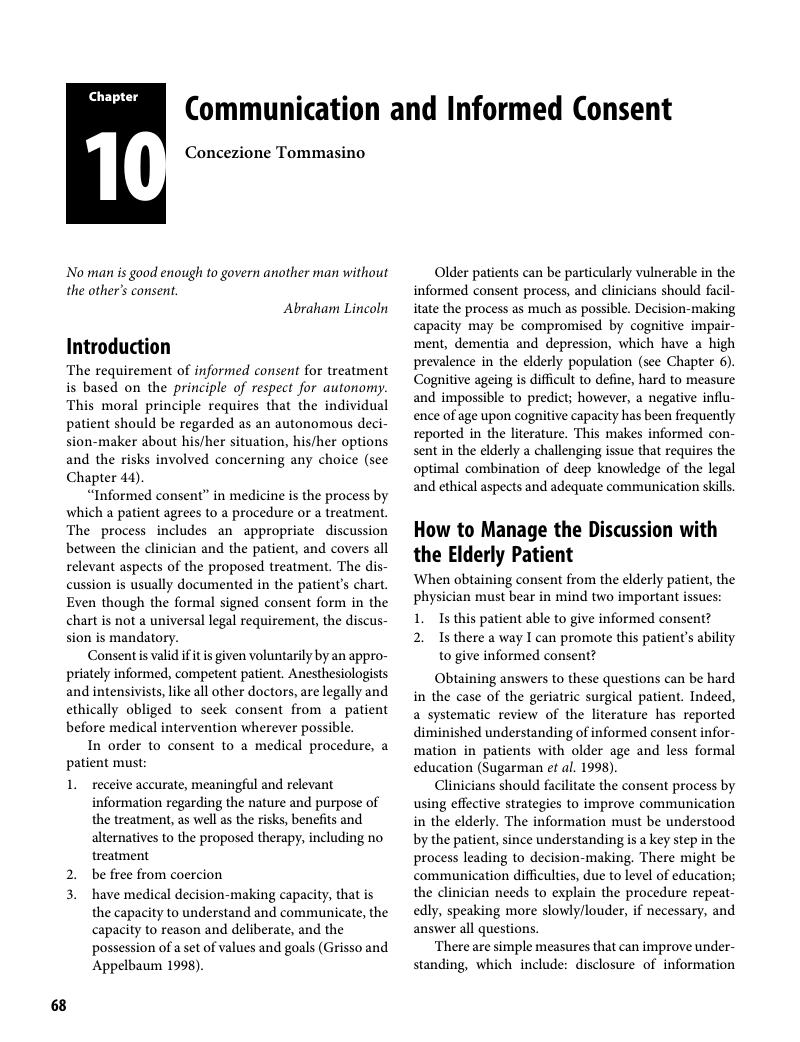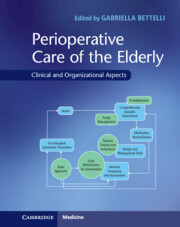Book contents
- Perioperative Care of the Elderly
- Perioperative Care of the Elderly
- Copyright page
- Contents
- Contributors
- Forewords
- Preface
- Introduction: Population Aging, Healthcare Systems and Surgery
- Section 1 Preoperative Evaluation
- Chapter 1 Aging and Age-related Functional Changes
- Chapter 2 Preoperative Evaluation from Traditional Consultation to Comprehensive Geriatric Assessment: A 360° Perspective
- Chapter 3 Comorbidities and Multimorbidity
- Chapter 4 Poly-medication and Perioperative Medication Management
- Chapter 5 Assessment of Functional Reserve
- Chapter 6 Cognitive and Emotional Evaluation
- Chapter 7 Sensorial Evaluation and Impact of Visual and Hearing Impairment on Communication
- Chapter 8 Preoperative Testing
- Chapter 9 Team-based Discussion on Preoperative Evaluation and Decision-making About Surgery
- Chapter 10 Communication and Informed Consent
- Chapter 11 Preoperative Care in Emergency Surgery
- Section 2 Preparation for Surgery
- Section 3 Intraoperative Management
- Section 4 Postoperative Management
- Section 5 Key Issues for Optimal Organization
- Index
- References
Chapter 10 - Communication and Informed Consent
from Section 1 - Preoperative Evaluation
Published online by Cambridge University Press: 16 November 2017
- Perioperative Care of the Elderly
- Perioperative Care of the Elderly
- Copyright page
- Contents
- Contributors
- Forewords
- Preface
- Introduction: Population Aging, Healthcare Systems and Surgery
- Section 1 Preoperative Evaluation
- Chapter 1 Aging and Age-related Functional Changes
- Chapter 2 Preoperative Evaluation from Traditional Consultation to Comprehensive Geriatric Assessment: A 360° Perspective
- Chapter 3 Comorbidities and Multimorbidity
- Chapter 4 Poly-medication and Perioperative Medication Management
- Chapter 5 Assessment of Functional Reserve
- Chapter 6 Cognitive and Emotional Evaluation
- Chapter 7 Sensorial Evaluation and Impact of Visual and Hearing Impairment on Communication
- Chapter 8 Preoperative Testing
- Chapter 9 Team-based Discussion on Preoperative Evaluation and Decision-making About Surgery
- Chapter 10 Communication and Informed Consent
- Chapter 11 Preoperative Care in Emergency Surgery
- Section 2 Preparation for Surgery
- Section 3 Intraoperative Management
- Section 4 Postoperative Management
- Section 5 Key Issues for Optimal Organization
- Index
- References
Summary

- Type
- Chapter
- Information
- Perioperative Care of the ElderlyClinical and Organizational Aspects, pp. 68 - 75Publisher: Cambridge University PressPrint publication year: 2017
References
- 1
- Cited by



